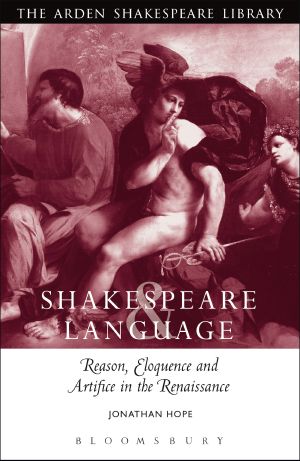Shakespeare and Language

- Authors
- Hope, Jonathan
- Publisher
- Bloomsbury Arden Shakespeare
- ISBN
- 9781904271697
- Date
- 2010-12-15T00:00:00+00:00
- Size
- 3.38 MB
- Lang
- en
Why would Elizabethan audiences find Shakespeare's Porter in *Macbeth* so funny? And what exactly is meant by the name the 'Weird' Sisters? Jonathan Hope, in a comprehensive and fascinating study, looks at how the concept of words meant something entirely different to Elizabethan audiences than they do to us today. In *Shakespeare and Language: Reason, Eloquence and Artifice in the Renaissance* , he traces the ideas about language that separate us from Shakespeare.
Our understanding of 'words', and how they get their meanings, based on a stable spelling system and dictionary definitions, simply does not hold. Language in the Renaissance was speech rather than writing - for most writers at the time, a 'word' was by definition a collection of sounds, not letters - and the consequences of this run deep. They explain our culture's inability to appreciate Shakespeare's wordplay, and suggest that a rift opened up in the seventeenth century as language came to be regarded as essentially 'written'. The book also considers the visual iconography of language in the Renaissance, the influence of the rhetorical tradition, the extent to which Shakespeare's late style is driven by a desire to increase the subjective content of the text, and new ways of studying Shakespeare's language using computers. As such it will be of great interest to all serious students and teachers of Shakespeare. Despite the complexity of its subject matter, the book is accessibly written with an undergraduate readership in mind.